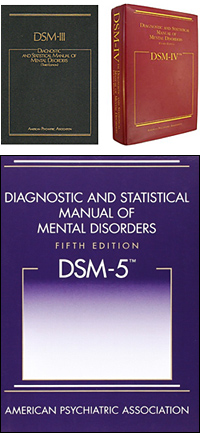 According to a recent article published in Frontiers of Immunology, “Ebola (as with all infectious pathogens) has evolved to circumvent innate immunity by appropriating anti-viral pathways and suppressing a viable immune system response”. Ebola’s superior resistance to immunological strategies coupled with its ability to generate incredibly high levels of cytokines and other inflammatory chemicals in the body is what makes Ebola so lethal. However, researchers are hoping to garner clues from people who survive Ebola infections regarding properties of antibodies that could be used to develop a viable vaccine.
According to a recent article published in Frontiers of Immunology, “Ebola (as with all infectious pathogens) has evolved to circumvent innate immunity by appropriating anti-viral pathways and suppressing a viable immune system response”. Ebola’s superior resistance to immunological strategies coupled with its ability to generate incredibly high levels of cytokines and other inflammatory chemicals in the body is what makes Ebola so lethal. However, researchers are hoping to garner clues from people who survive Ebola infections regarding properties of antibodies that could be used to develop a viable vaccine.
What We Know about Ebola
• African fruit bats are probably potential reservoirs of the Ebola virus.
• In non-fatal cases of Ebola , patients typically show improvement between day six and day 11 following onset of symptoms while simultaneously presenting a lymphatic fluid and plasma antibody response.
• Five species of the Ebola virus are known to exist: Sudan, Zaire, Reston, Bundibugyo and the Côte d’Ivoire.
• The first known Ebola outbreak occurred in the 1970s in Sudan and the Democratic Republic of the Congo. No additional cases of Ebola were subsequently confirmed in Africa until 1994.
• Glycoprotein spikes embedded in the virus bind to human cells and promote fusion between host cell membranes and the viral envelope. This action enables the Ebola virus to enter host cell cytoplasm, infect the cell and generate an inflammatory response from the immune system.
• In contrast to bacteria (many of which are beneficial to human health), all viruses are harmful to humans and cannot be eradicated by antibiotics. Additionally, viruses are not technically considered “living” organisms since they remain dormant until acquiring a living host in which to replicate.
What is ZMapp?
Initially tested in 2012 on rheses macaque monkeys, ZMapp’s monoclonal antibodies proved to be effective against the malignancy of the virus by targeting surface glycoproteins that facilitate its rapid dispersion within the bloodstream. This gives the immune system more time to eliminate the virus from the body.
Antibodies contained in ZMapp are “pharmed” in the Nicotiana benthamiana, a tobacco plant needed to effect a process called RAMP, or “rapid antibody manufacturing platform”. After infecting plants with the Ebola virus, antibodies are extracted, purified and packaged as ZMapp. Until the recent Ebola outbreak in Sierra Leone, Liberia and Guinea, ZMapp had only been used experimentally on non-human primates. When two health care workers in South Africa tested positive for the Ebola virus, they were given the ZMapp serum within several days of developing classic Ebola symptoms and survived. However, five other infected people were also given ZMapp. Three out of those five survived.
The Centers for Disease Control states that ZMapp is not a vaccine but a “therapuetic product” to treat people already infected with the virus. In contrast to a therapeutic product, a vaccine deliberately provokes the immune system into generating antibodies to provide cellular immunity strong enough to prevent infection.
Ebola Vaccines in Development
No FDA-approved Ebola vaccines are currently available. However, the National Institutes of Health Division of Allergy and Infectious Diseases is working on vaccines and have launched Phase I clinical trials at Bethesda, Maryland’s NIH Clinical Center, which involve testing of investigational vaccines manufactured by GlaxoSmithKline and NIAID on human subjects.
The CDC names the following vaccine platforms as “under development and showing promise” for preventing Ebola or Marburg infections:
• Venezuelan equine encephalitis virus replicons
• Replication competent recombinant human parainfluenza virus 3
• Replication incompetent adenovirus vectors
• Recombinant vesicular stomatitis virus
• Recombinant Chimpanzee Adenovirus Serotype 3 Vectored Ebola Vaccine
Accelerating the Process of Developing a Vaccine
The Zaire Ebola strain now spreading throughout West Africa exhibits low variability and mutability, making the possibility of quickly developing therapeutic products and vaccines entirely achievable. A statement issued by the International Union of Immunology Societies reports on the urgent need for adequate funding from appropriate governments and agencies to support vaccine candidates, expedition of clinical trials and rapid mobilization of immunization protocols in Ebola-stricken, West African countries.
Is a Nicotine Addiction Relapse a Concern?
Millions of people have quit smoking cigarettes, and very few want to risk starting again by being exposed to any type of nicotine. Although the vaccine is grown using a fast growing tobacco plant that this does not mean that a person in recovering from addiction need worry about relapsing from it. If you have been addicted to nicotine and gone through withdrawal you need not be concerned about yet another withdrawal. Think of the nicotine as being like an organic petri dish – the nicotine will not enter your body as part of the cure.






